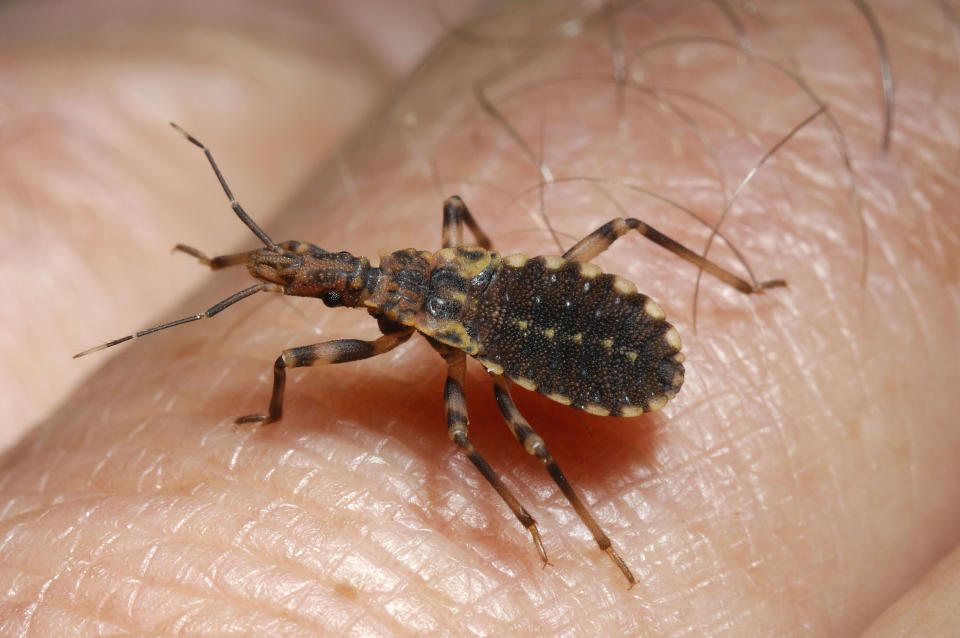Everything you need to know about the deadly 'kissing bug'

A potentially dangerous blood-sucking insect nicknamed the “kissing bug” has been found for the first time in Delaware.
According to a new report by the Centers for Disease Control and Prevention (CDC), a Kent County, Del. family contacted the Delaware Division of Public Health after noticing a suspicious bug bite around their daughter’s mouth. An investigation identified the bug as a species of triatomine known as Triatoma sanguisuga, a blood-sucking insect that feeds on humans and animals by biting their faces. The insect was also recently discovered in Colorado.
The kissing bug transmits the parasite Trypanosoma cruzi, not through their bite, but through their feces. The bugs are typically active at night, waiting until people have fallen asleep to bite a person’s face.
After ingesting blood, the kissing bug defecates on the skin, which can be absorbed into the body through breaks in the skin. Often unaware that they’ve been bitten, people can absorb the parasite into their body by rubbing their faces or touching their eyes and mouth.
Kissing bug bites often cause swelling, hives or welts to the face. Most commonly found in rural areas of Latin America, Chagas disease affects approximately 8 million people, most of whom don’t know they are infected. Some people develop flu-like symptoms for the first few weeks after transmission. If undetected, Chagas disease can cause serious health issues such as an enlarged heart or sudden cardiac arrest.
The CDC estimates that nearly 300,000 people in the United States have Chagas disease, with many becoming infected while visiting areas of Latin America.

Despite the presence of the specific triatomine in Delaware, the CDC says there is currently evidence of the dangerous parasite in the state, and note that the girl bitten is experiencing “no ill effects.” They also note that even if the bug is infected, the likelihood of transmission is “low.”
ALSO SEE: 'I dropped my son on his head....': Star opens up about 'traumatic' accident
The CDC recommends people take precaution by ensuring all outdoor lights are kept away from all dwellings so as to not attract insects. They also recommend that any trash, birds nests or piles of debris such as rocks be moved away from the surrounding area of the home, and that all cracks or gaps in windows and doors be sealed and repaired to prevent insects from entering the home.
et us know what you think by commenting below and tweeting @YahooStyleCA!Follow us on Twitter and Instagram.
Check out Yahoo Canada’s podcast, Make It Reign — our hot takes on all things royals in a non-stuffy way — on Apple Podcasts and Google Podcasts.

